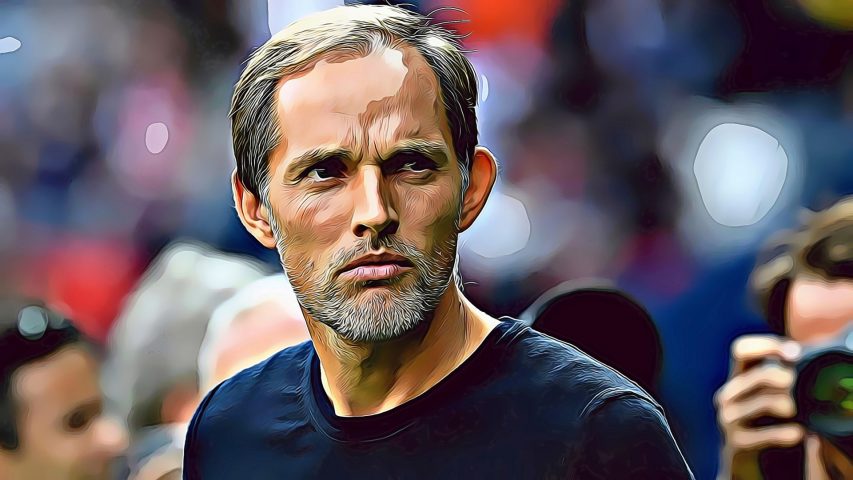
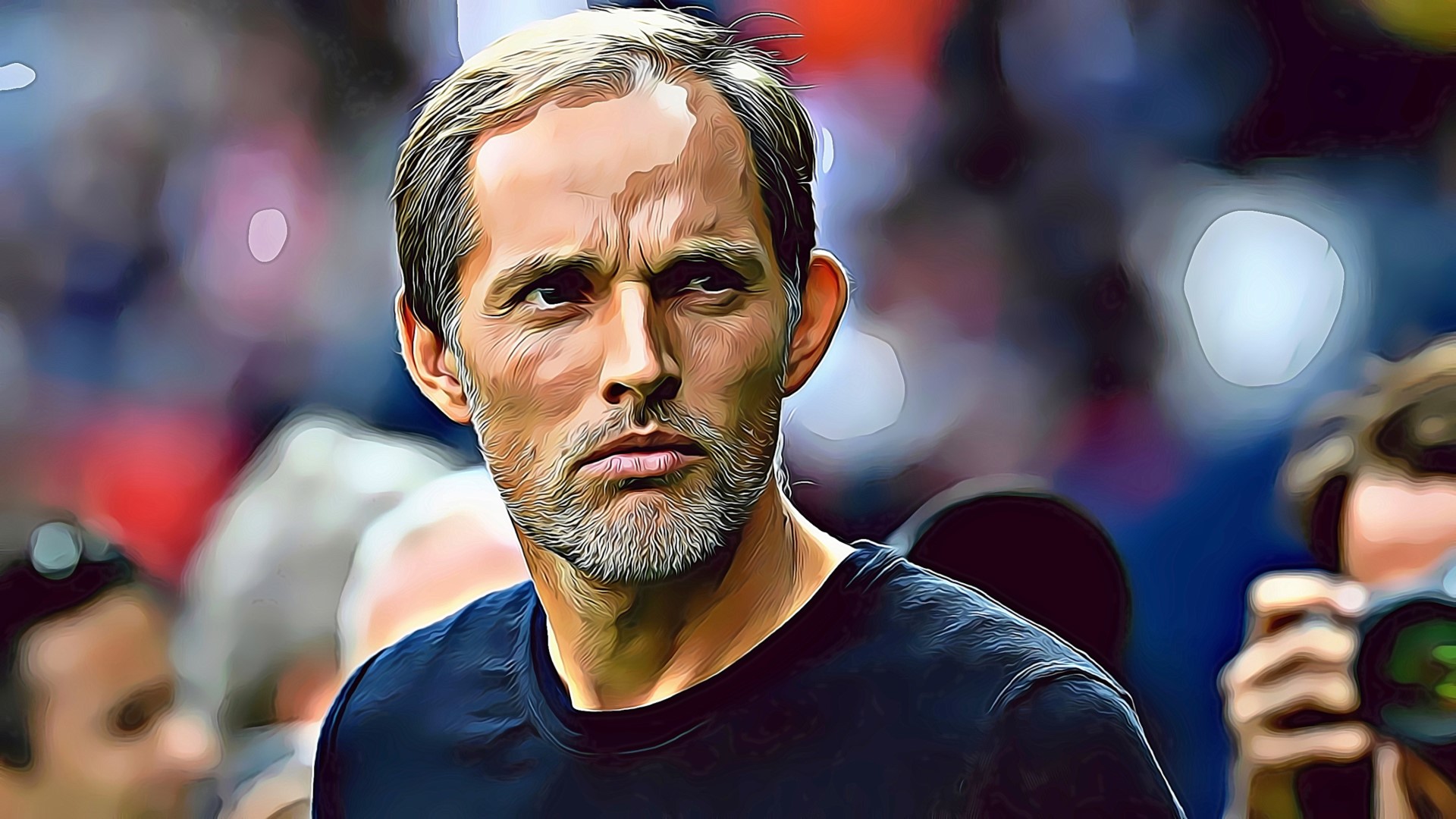
FOOTBALL'S MOST WANTED ● THOMAS TUCHEL
When Pep Guardiola was nearing the end of his contract at Bayern Munchen, the hierarchy was readying the club for a transitional period. Under the Spaniard, Bayern won all there was except for the coveted European crown. But even then, reaching 3 semifinals in a row was no mean feat and Pep’s signature brand of football was mesmerizing. The club was adamant that his replacement should be someone that could continue the trend.
Pep Guardiola was asked for a recommendation for his replacement. The Catalan, without a moment’s hesitation had one name: Thomas Tuchel - the German who was head of Bayern's archrivals Borussia Dortmund. Whilst Pep had the better of him, winning all the league titles, Die Schwarzgelben were never far behind and the quality of their football had made a serious impression.
Whilst they no longer kerranged their opponents with the ferocity of old, Tuchel’s more methodical approach was no less entertaining. When they went head-to-head against Pep's Bayern, the old adage "Football is a game of (Blitz) chess" could not have been more adept as both coaches kept concocting and deploying different tactics at the speed of light in an attempt to unsettle their respective opponent. It was an aesthetic and intellectual spectacle of the highest order.
Tuchel would go on to turn down the overtures of the Bavarians to take over PSG where he would win back-to-back Ligue 1 titles as well as finishing runners up in the most recent edition of the Champions League. He’s now back on the market and in this article we will dissect the man and discuss what is the best club for him to join and write the next chapter of his managerial journey – one where he could finally carve out his own legacy.

THE MAKING OF THOMAS TUCHEL
FAILED FOOTBALLER
After only making 8 appearances at second tier side Stuttgart Kickers and 69 matches in the third division for SSV Ulm, Tuchel was on the verge of hanging up his boots for good due to a serious knee injury at the age of 24 in 1998. However as one door looked set to close, another opened...
At Ulm, Tuchel’s manager was none other than tactical revolutionary Ralf Rangnick. During Tuchel’s enforced break from the game – Ragnick had managed to guide Ulm into the Bundesliga but before the end of the campaign it was leaked that he had already secured a role at VFB Stuttgart, an established Bundesliga outfit. Unbeknownst to Tuchel, it would be here where his coaching journey would begin.

THE SCHOOL OF STUTTGART
Desperate to not give up on playing, the young German contacted his former manager, with a desperate plea… a trial for VFB Stuttgart Reserves – a final shot at the big time. When it became all too apparent that the end was nigh and Tuchel’s knee was indeed irreparable, Rangnick planted the coaching seed by asking if Tuchel could envision working in youth football as a mentor.
Curiosity piqued, Tuchel would go through the ranks, coaching the U-14s, the U-15s and then the U-19s, achieving unprecedented levels of success. He was guided by a dual system of philosophical principles. Tactically he was a staunch disciple of the Helmut Groß/Ragnick school of offensive thinking, forward defense [pressing] and ball-oriented play – principles they had absorbed through years of studying the likes Arrigo Sacchi and Valeriy Lobanovskyi.
Off the pitch, Tuchel was guided by the holistic principles of Hermann Badstuber, the father of former Bayern Munich defender, Holger. He taught Tuchel the ‘Art of Building Personalities’ - emphasising the importance of respect, appreciation, punctuality and the right mindset with coaches and fellow players. Simple acts like greetings with handshakes and making eye contact in conversations were imperative.
Tuchel soon found himself at Augsburg FC (where he had developed as a youth player) and was initially appointed as their U19 Head Coach. After completing his coaching badges, he was afforded the opportunity to run their reserve team, a team which contained a certain Julian Nagelsmann – a young injury prone defender. Demonstrating an innate capacity to recognise and nurture talent when it arose, Tuchel instructed the young man – aged 20 at the time – to provide opposition scouting reports…setting him on the path to coaching stardom.
After three years there, Tuchel was invited to take over the U19 side of Mainz 05 – whose first team had just been relegated from the Bundesliga under the leadership of the now departing Jurgen Klopp. At Mainz 05, Tuchel would catch the eye of many after winning the 2009 German Youth Championship against a highly fancied Borussia Dortmund outfit featuring the likes of Mario Götze.
In order to stave off interest in their budding managerial talent, Mainz 05 who had just secured promotion back to the Bundesliga under the considered tutelage of Jorn Anderson, ruthlessly binned the Norwegian and handed to reigns to the fresh faced Tuchel – his first top level job – aged 36 and after just 9 years as a coach.

RUFFLING FEATHERS IN THE BUNDESLIGA (MAINZ 05)
Throughout his career as a first team manager, Tuchel has been an advocate of engineered conflict. He likes to create complex problems for his players to solve and detests players who cannot think on their feet. In this respect, he seeks to set himself apart from the likes of Klopp and Pep who are consistently systematic in their approach and prefer to micromanage every aspect of the buildup play.
At Mainz 05, despite being low on funds and having a relatively unbalanced squad which was ill equipped for top level football, Tuchel was able to use ‘engineered conflict’ to bring his troops to the desired level. He forced his players to become accustomed to training in different shapes and pitch sizes varying from rhombuses to circles, or 18m wide x 75m length and 30m length x 70m wide. By pushing the players to their intellectual limits they would not be overtaxed when confronted with the ever-changing scenarios of match day.
On the pitch, Tuchel experimented with a range of formations – his weapon of choice generally being a 4-2-3-1 and 4-1-2-1-2. This tactical versatility would prove to become a hall mark of his managerial style. One extreme example of this was his use of the pentagon (5-2-2-1) against Bayern in 2013. Whilst it would not yield the desired result, in the early stages of the game he had Pep on the run and threatened to ‘Out-Chess’ the great Spaniard. Ultimately Tuchel was a success, establishing Mainz 05 as a top 10 club in the Bundesliga with his highest placed finish being 5th.

CHALLENGING FOR SILVERWARE (BORUSSIA DORTMUND)
After Jürgen Klopp announced that he would leave Die Borussen following the 2014–15 season, there was only one man the Dortmund hierarchy deemed worthy of the job… Thomas Tuchel. They had kept their eye on him ever since that 2009 Youth Championship win.
Keen to step out the shadows of his predecessor, Tuchel conducted a mass clear-out. He was keen to inject fresh minds and legs into the jaded squad – crucial if he were to successfully implement his own unique brand of high-octane football. The overall vision was to have a tight squad of motivated, mouldable, receptive individuals who would facilitate his vision.
Whilst on the whole the philosophical framework of Tuchel echoed that implemented by Klopp i.e. gegenpressing and lightning counter attacks, a subtle tweak was made to the balance of the midfield. Tuchel wanted more ‘control’ and ‘class’ in the midfield, in stark contrast to Klopp who prioritised work-rate. He wanted to incorporate ideas from the Barca/Ajax model and fuse it with the foundations he had established at Stuttgart.
Out went the industrious but rather limited Bender and in came the silky Julian Weigl - to act as Tuchel’s deep lying fulcrum in midfield - his own mini Sergi Busquets. Throughout Tuchel’s tenure the young German would act as the ubiquitous presence whilst all else around him shifted, game to game depending on the opponent. This helped Dortmund to an average ball possession of 64%.
Shape wise there was also a revolution. At the beginning of his tenure, Tuchel used his customary 4-2-3-1/4-1-4-1 shape. By the end of his tenure, Tuchel began to unleash his full array of tactical magic such as instructing Piszczek to drop deep to become the third centre-back thus enabling Dortmund to adopt a 3-2-5 or 3-2-4-1-shape in possession.
Ultimately Tuchel would not prove to be as successful as Klopp in terms of silverware but he did outdo him on other metrics. His team was more creative, creating more and better quality of chances worth 78.84 NPxG – by far the most in the league. Furthermore whilst the average club amassed 0.11 xG/Shot in 2015/16, Tuchel’s side had an average xG of 0.153. His overall record of 68 wins, 23 draws, and 17 defeats in 108 games, with a win percentage of 62.96% was also superior.
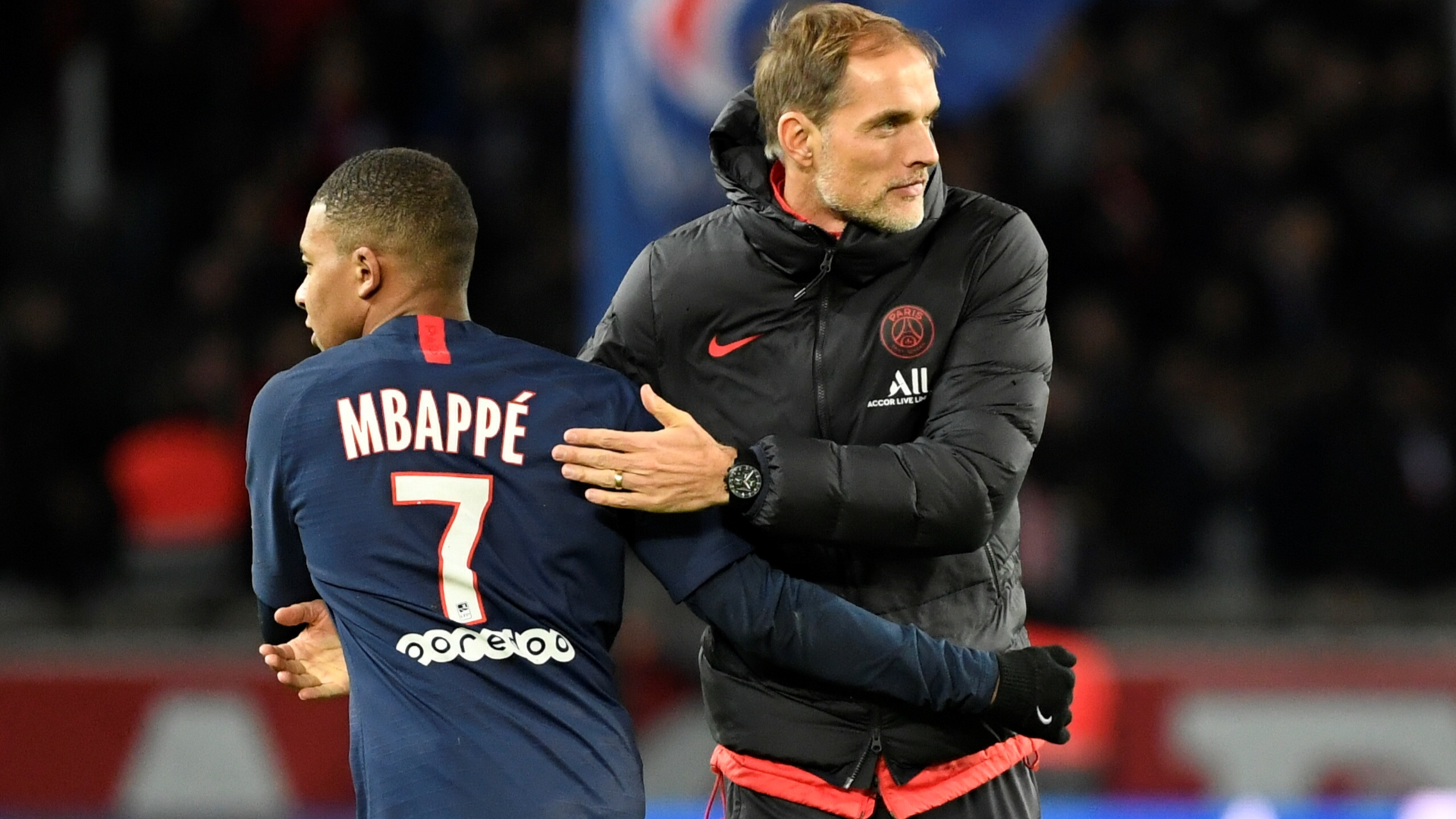
PRINCE OF PARIS (PARIS SAINT GERMAIN)
When Tuchel landed in Paris for the next stage of his managerial journey, many were surprised. Having worked predominantly with underdog clubs with small budgets and willing runners, the German now found himself part of the aristocracy – emphasising his similarities with Guardiola and highlighting his differences to the committed socialist Jurgen Klopp.
He now found under his command two of the most talented and egotistical footballers in the modern game, Kylian Mbappe and Neymar. This potentially represented a tactical problem for Tuchel who was brought up on the principle of defending from the front and winning the ball aggressively in the final third. To combat this issue, Tuchel did what he knew best… adapt and experiment.
He used 10 formations alone in Ligue 1, ranging from a 3-4-2-1 to a 4-2-3-1. Tuchel did have underlying guiding principles and one of those was to ensure that Neymar was happy and in his most optimal role - reflecting his increased tendency to want to drift into central areas and avoid tracking duties on the wing. Fortunately for Tuchel, more often than not Neymar was injured so he could put out a more workmanlike side out and apply his usual philosophical framework.
Having said that, he desperately needed the Brazilian in the Champions League. In Neymar’s absence, Tuchel fielded a 4-2-3-1 which lacked sparkle and featured an ageing Dani Alves as a right winger and Di Maria as an orthodox winger (a position which he had not really thrived in since his time at Benfica). It was a cluster feck and the tinkering Tuchel had run out of cards to shuffle. PSG would go out to an awful Manchester United outfit and he was fortunate to keep his job for another season.
The following season Tuchel returned to basics. He injected work ethic and dynamism into the squad, signing combative midfielders from the Premier League…Ander Herrera and Idrissa Gueye. He also brought in Mauro Icardi and became less reliant on the ageing Edinson Cavani.
In terms of shape, he only used 3 formations thus breeding familiarity but not contempt. He used a 4 man backline and further forward he produced a bespoke 4-2-2-2 which brought the best out of Di Maria and Neymar… allowing them to roam as inverted playmakers whilst handing the responsibility of permanent width to the wing backs. Whilst the team did not press as intensely as his Dortmund sides, it was the most creative side he had ever managed and was easily the most easy on the eye side in Europe.
On the topic of Europe, PSG finally met expectations under Tuchel and reached the final of the Champions League. Unfortunately, an injury to Verratti derailed their chances of taking home the trophy as Thiago Alcantara ran the show unopposed, starving PSG of the ball and rendering the likes of Mbappe and Neymar as mere onlookers. It could be argued that despite the injury, Tuchel resorted to pragmatism and a ‘safe’ line-up rather than be bold and put together a selection which took the game to the Germans.

MANAGERIAL PHILOSOPHY
VERSATILITY
If there is to be a defining feature of Tuchel’s managerial philosophy, it has to be his ability to shape shift. In many ways he is the epitome of the post-modern manager and someone who takes Guardiola’s in game positional shifts to another level, a product of the current obsession with formations and shape – think of the increased prevalence of artificial football simulations such as ‘Football Manager’ and ‘Ultimate Team’. Tuchel manages a game like he is playing a video game (this is not meant as a criticism).
CONTROL
A hybrid between Klopp and Guardiola, Tuchel’s underlying aims include to ‘prevent’ the other side from playing their football via the ‘Gegenpress’ and aiming to exert dominance on any given game. His teams simply do not go into a game seeking to purely counter-attack and adopt a low block. They look to win the ball high up the pitch and move the ball around with technical proficiency.
His obsession with possession requires stylish midfield players… Weigl, Gundogan, Verratti, Parades – even his so-called water carriers needed to be very nimble in possession i.e. Herrera and Gueye - this is in stark contrast to a Klopp whose tactical framework can survive without the presence of such a conductor, without fluidity and functions even with straight line players such as Henderson.
INNOVATIVE
Tuchel does not like his players to be ‘drones’. He believes in the power of the individual to solve problems under pressure and tailors training to continually challenge and stretch his players. Players practise on slippery, extremely narrow or extremely wide pitches and are given brain teasers such as being asked to control the ball with their knees before passes and hold on to tennis balls to stop them pulling the shirts of opponents.
CONFLICT
Tuchel not been able to create a dynasty at clubs he managed. His ‘perfectionist’ streak and ambition, not to mention his inability to align with the vision of the club hierarchy has been a problem. Nevertheless, one can imagine Tuchel might be able to fully express himself if given the right resources and club backing. With Tuchel back in the market, a few many clubs have been monitoring their own situation while keeping tabs on his availability. Needless to say clubs all around Europe have been wanting and waiting for the right moment.
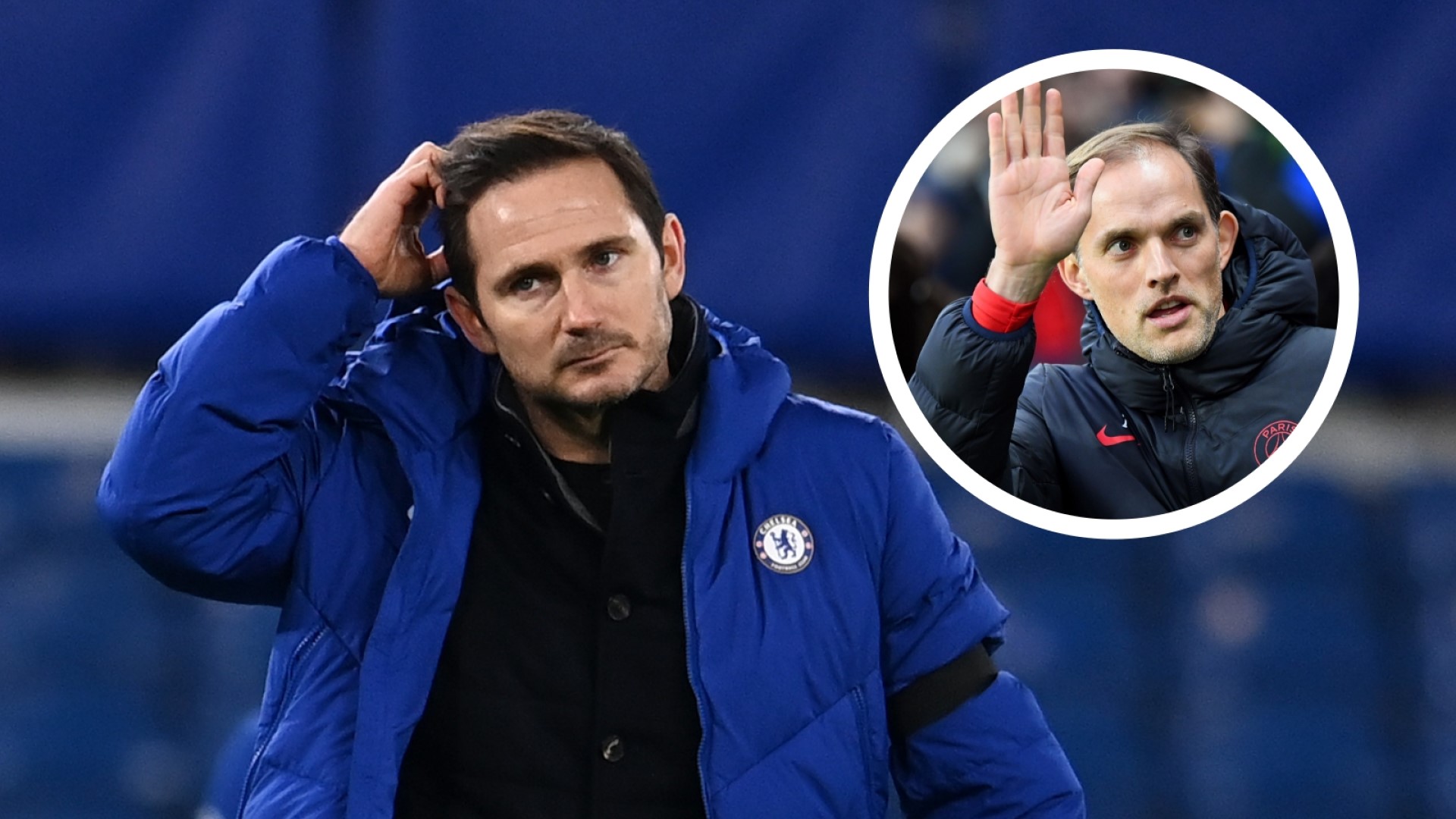
THE NEXT MOVE
CHELSEA: LONDON IS CALLING
Lampard is under pressure. No coach in history has survived the slump Chelsea are currently in. Abramovich is not known for his patience. With a club in transition, the type of players recruited, this looks like the ideal setting for Tuchel. He will have a perfect balance of talent and experience to work with, an absence of any real major egos and willing runners.
He may need to sign a new DLP who possesses sufficient defensive characteristics if he wants to construct play from the back, Jorginho will suffice in the short term but he will want an upgrade if he wants Chelsea to be a title winning force and truly build a side in his image. Up front, Chelsea lack a world-class centre forward but in truth none of Tuchel’s teams have required a world class forward – he will however expect more from the wide forwards in terms of output.
There were reports of an enquiry regarding Tuchel's status 2 seasons ago, so he is on the radar. However does he really want to be working in another trigger happy interventionist environment where he would be under pressure if results go south and if he drops ‘big money’ players to the annoyance of Roman?
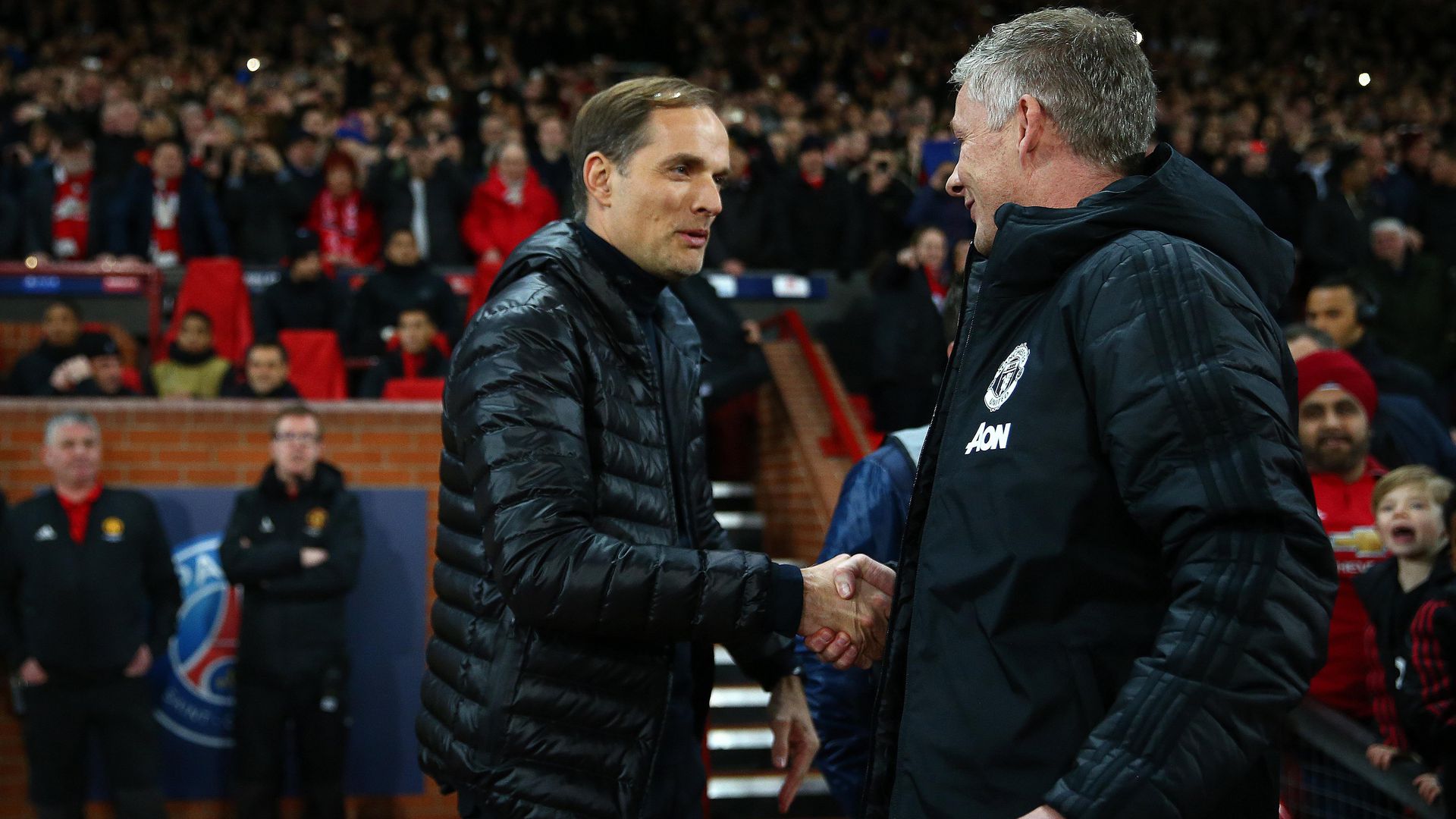
MANCHESTER UNITED: BLANK SLATE
Philosophically United is a ‘tablu rasa’ club. It is devoid of an imprint, a particular style of playing football and therefore it remains a moldable team for a manager who seeks to build a team in his image. The downside is that it would a transitional period for United to be brought up to scratch with the modern way of high press/play out from the back and greater emphasis on keep ball.
Squad wise, out would go the likes of Wan-Bissaka as Tuchel demands technical prowess in his full backs, a passing metronome would have to come in the deeper areas to take the place of Fred and it is hard to imagine him tolerating Bruno Fernandes losing the ball as much as he does – although he would fancy his ability to improve the Portuguese’s decision making via coaching.
Board wise and fanbase wise, this would be the best fit. He would be given decent funds and patience to build his team. United has the glamour and history that he's not had the chance to experience just yet and it would be the ultimate test of his managerial acumen. The problem? It seems like Ole has slowly won over the fans and there is a growing sense of optimism for the future – the timing seems to be off.

ARSENAL: TUCHEL FAN TV
Recent results have suggested Arteta has somewhat withered the storm. But if there's one thing we have learned from this season, it's that anything can happen with a couple of wins or losses. Coaches are under immense pressure. The Gunners in particular haven't been at their best at times and if their league position is compared their previous campaign then there's no doubt Arteta will have to do better.
Big issues include the lack of world-class quality in forward areas, Auba and Lacazette are not going to be of the sufficient level to satisfy a manager of Tuchel’s ambition. He will enjoy working with the likes of Saka, a player whose natural football IQ is already of an exceptional level but there is not enough quality in the ranks for an immediate transformation of fortunes.
On the plus side it is a club where any progress however incremental it is will be welcomed by the fans and rewarded with loyalty. On the flip side, they are hungry for success and after years of failure and embarrassment, a slow start will not be tolerated. It will also take years of commitment to reap any rewards from a club that needs a mass overhaul not just in terms of personnel but culture.
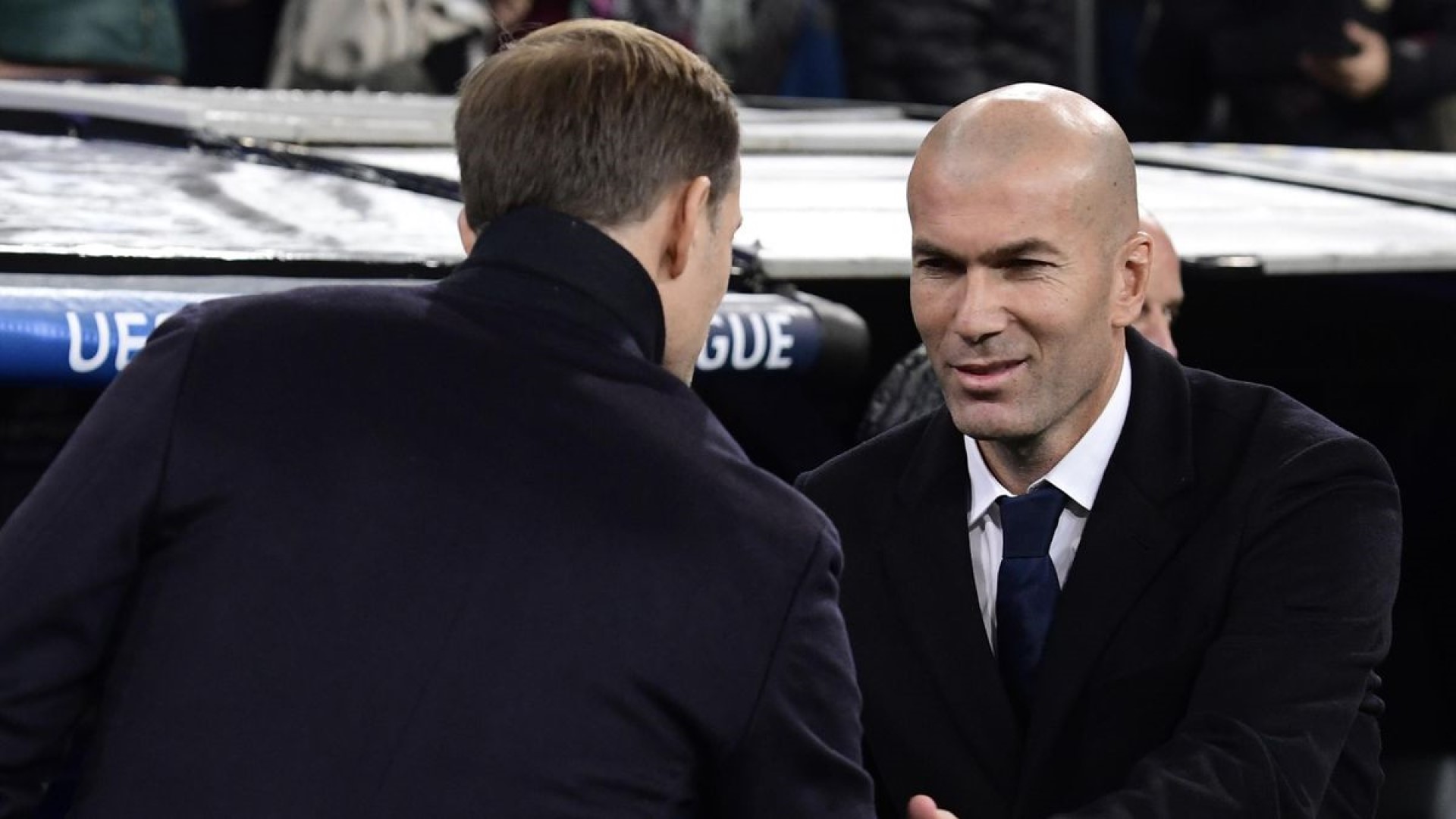
REAL MADRID: SER O NO SER
Zidane's side seem to have overcome their early set-backs. But as any coach would tell you, you are never safe at the Madrid club. Florentino Perez has a liking for Tuchel even though the German has had a questionable reputation. The great thing with Real is they do not seem to mind instability; it is part of the very fabric of the club and one of the reasons why they always remain so competitive.
He may end up being reunited with Mbappe if he was to come and that is one of the main conondrums. Madrid is the ‘Galactico’ club and seeing as their squad is coming to the end of its cycle in many key areas on the pitch, they are inevitably going to spend their way out of this situation once the old guard is discarded.
Tuchel demonstrated he can win over major footballs stars and PSG and he can certainly lead the next generation and play in a style befitting of Madrid, but for him to stay true to himself and his long term vision he also needs willing runners and not ego’s to make his football work. Will he want to sell his soul again?
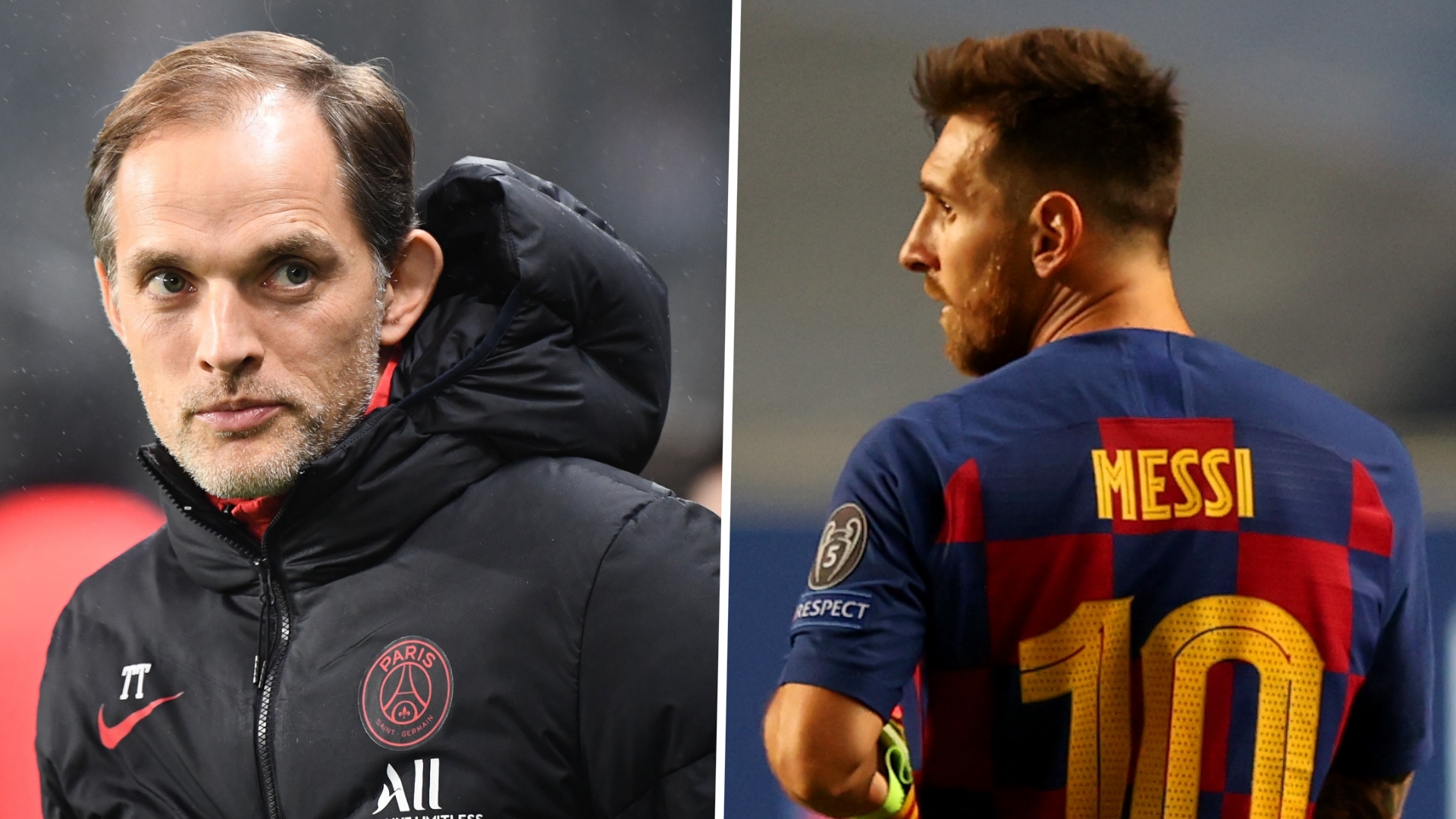
FC BARCELONA: PEP’S HEIR
Going to Barcelona would mean a great deal to a Pep aficionado like Tuchel. He would bring back style and panache to the Camp Nou and in many ways he is the spiritual successor to the likes of Cruyff and Guardiola and their obsession with space, possession and freaky formations. He like them is also a huge believer in having a team full of ‘thinkers’ and ‘problem solvers’ on the pitch and prioritises ‘team’ over ‘I’ .
The current squad requires a major overhaul and it will not be an easy job by any means. The expectation from the fans and the reality of their situation do not go hand in hand and in many ways it is a poisoned chalice. But at the same time has there or will there be a better opportunity to get a job with the Catalan’s and write his name into footballing folklore by restoring them to greatness?

INTER MILAN: IN AUMENTO
Inter and megalomaniac prickly tactical geniuses seem to go hand in hand when it comes to winning the big trophies. Mourinho followed in the hallowed footsteps of Helanio Herrera and proved that even when Serie A seemed dead and buried on the big stage, a manager of hall of fame proportions can take a failing giant like Inter, play with incredibly precise tactical precision and take on the world.
It would be tempting for Tuchel to learn and further advance his knowledge by plying his trade in a nation renowned for its passion for football tactics. Furthermore Inter has a strong German heritage. Who can forget the impact of Matthaus, Klinsmann and Brehme in the late 80’s? With the likes of Hakimi embedded within the club, and players like Lauturo Martinez and Eriksen in the squad, there is potential for him to create his style of play without too many signings.

LIVERPOOL: WHERE KLOPP GOES HE FOLLOWS
Klopp is in his 6th season and next season will be his 7th. He’s never managed the same club past that point and Tuchel followed him at Mainz and Dortmund after these 7 year tenures. Could Tuchel do the same thing once again by taking over from him at Liverpool?
One of the advantages by doing so is that he would be taking over a club already capable of competing for major trophies and they will be well-versed in the Gegenpress. On the flip side, it is a squad which may be running out of charge and may not be able to put in the same hard yards as it did under Klopp. However Tuchel faced a similar issue at Dortmund and he was able to overcome it and rejuvenate the squad successfully.
Personnel wise, if there is any manager in the game who can appreciate and value Thiago Alcantara and bring out the best in him, it would be Tuchel who loves his regista’s and DLP’s. In the Spaniard, he would have his ready made Verratti replacement and the platform would be set for him to conduct Tuchel’s glorious orchestra of football.

PYTHAGORAS PERSPECTIVE
Tuchel would be advised to bide his time before making his next move. He could have his pick of clubs if he waits until the end of this or next season and hotseats at giants such as Barcelona, Madrid, Liverpool and United could become available by that stage.
Whilst the Chelsea move would enable him to challenge the likes of Pep and Klopp directly and oversee the growth of a young talented squad, his stock has never been higher and his chance to manage a true giant of the game may pass if he fails to make the requisite impact at Stamford Bridge. It may also close the door to managing the likes of Liverpool and United further down the line, limiting his options in the long term.
In terms of talent, Tuchel is without a shadow of a doubt one of the most exciting managers in the game. He is pushing boundaries, ambitious and cocksure. In some ways he is a strange hybrid of Mourinho, Guardiola and Klopp but in order for him to prove he’s even worthy of being ranked alongside these greats of the game he has to ensure he chooses his next role wisely.
PSG was a risk but in hindsight it elevated his status and would have given him considerable experience of managing world-class footballers and ego’s. Furthermore he guided them further than they ever have been before in European competition, improving their tactical discipline and mental fortitude – not bad for a manager once decried as a ‘hipster’ coach. One thing is for sure, his next club will not be experiencing a quiet tenure with Tuchel in charge… he is a man who always looks to make waves.
Written by
Raees Mahmood and Dr Amer Waseem (follow us on Twitter @pythaginboots)



